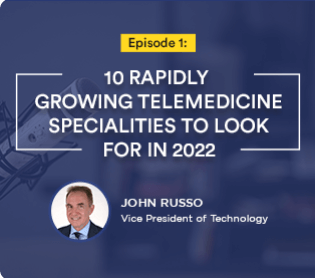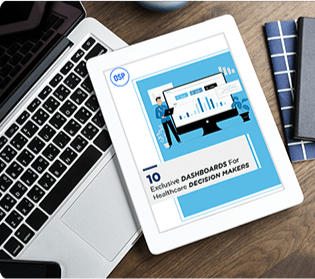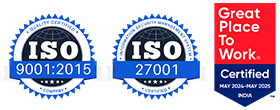The benefits of EHR solutions are evident across the healthcare industry, and it continues to be the preferred choice for health system development. EHR solutions specifically bridge the gap between healthcare providers and patients. Mobile EMR software solutions development is also catching up to match the increasing demand for these solutions.
As healthcare shifts its paradigm toward patient-centric caregiving, health providers must balance quality of care delivery with moderate costs while simultaneously tracking workforce performance and financials. Every healthcare organization has a unique business model; to keep all these dimensions effective, a customized EHR system is essential. Robust EHR solutions can provide actionable insights into the hospital’s huge amount of data collected.
Through the advanced capabilities of healthcare analytics solutions, organizations can analyze medical tests, diagnoses, lab reports, prescribed medications, and many data points on a single dashboard. Tailor-made EHR software can aid clinicians in making prompt and informed decisions about patient care and delivering them right on time. Every health organization must seek to identify its specific needs and understand various trends while building the right solution. A careful choice of custom healthcare solutions will enable positive outcomes toward improving healthcare quality. Listed below are the many advantages offered by EHR system software companies:
- Data Retrieval Capabilities
- Increased Healthcare Security
- Improved Operational Visibility
- Accurate Data Reporting
- Higher Quality Control
- Better Patient Management
- Easy Healthcare Accessibility
- Reduced Overall Costs
Advantages of Building a Customized EHR Solution:
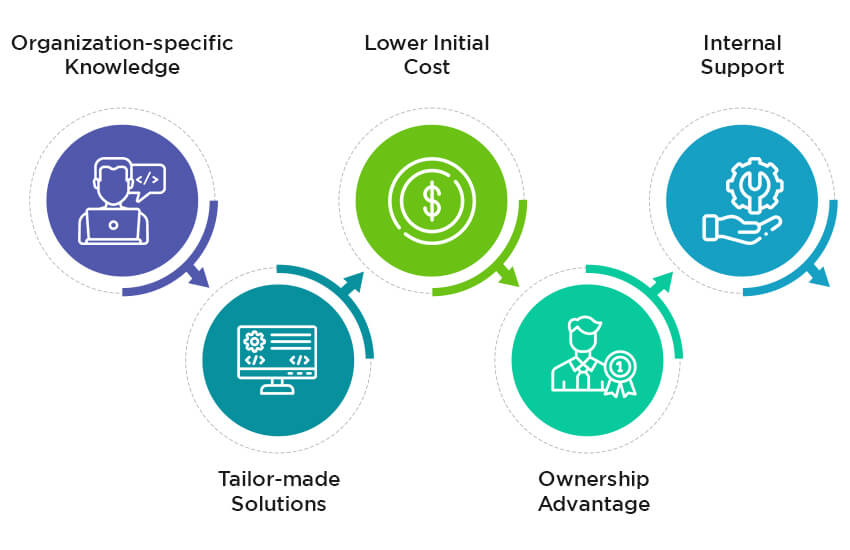
1. Organization-specific Knowledge – Leveraging internal software developers comes with a competitive advantage and specific knowledge relevant to that particular organization.
2. Tailor-made Solutions – Building in-house software is usually embedded with features that offer solutions about the organization’s requirements and addresses the gaps in the system that may or may not exist in other solutions.
3. Lower Initial Cost – Considering that the resources are internal, the initial cost of building the software is lower than what an organization would spend on buying the solution. The expertise of IT developers is already available within the healthcare agency.
4. Ownership Advantage – Internally built software is the brainchild of the organization and comes with the advantage of ownership. It provides an added advantage as a knowledge asset in the large-scale spectrum of the healthcare industry.
5. Internal Support – While building your software, there is a distinct advantage of internal staff support that offers valuable insights into the requirements of the solution. From front-end staff to back-end management, everyone can contribute to overall functionality.
Disadvantages of Buying a Pre-existing Solution:
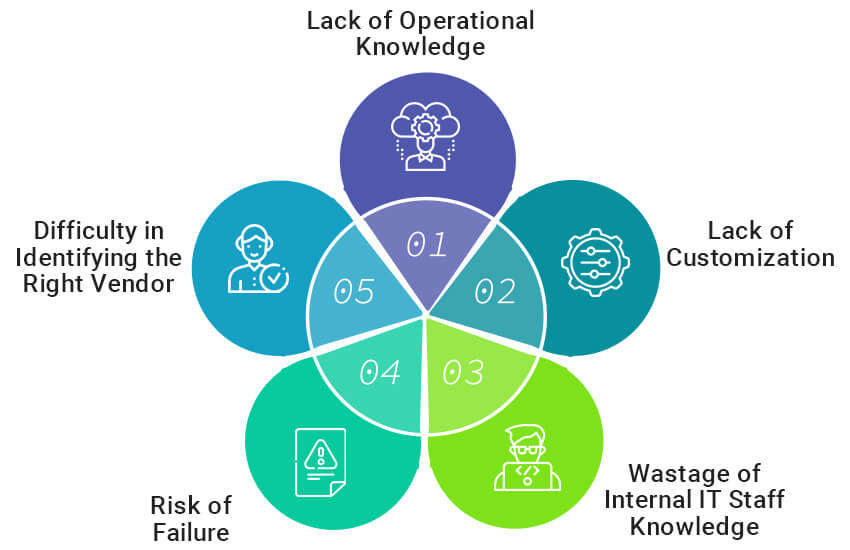
1. Lack of Operational Knowledge – Operational knowledge is key when it comes to coordinated care or accountable care. A pre-existent software is prone to reduced knowledge of the in-house staff on operating the system.
2. Lack of Customization – A standard solution may be embedded with top-of-the-line features but lacks a tailor-made approach to the specific organization. It may be a powerful solution, but it still may not have some features that are specifically suited for the relevant healthcare agency.
3. Wastage of Internal IT Staff Knowledge – If the organization is equipped with internal software developers, their expertise is usually wasted in the buying option. They could provide valuable inputs crucial to the development of the software.
4. Risk of Failure – When outsourcing any job, there is always a risk of failure. This is because the guarantee of successful execution is not 100% with any vendor. Execution strategies and expertise are all outside the organization’s control and sometimes lead to disappointments.
5. Difficulty in Identifying the Right Vendor – Even though the vast number of vendors available in the healthcare industry makes buying the software convenient, it also brings a certain amount of confusion and risk of selecting the incorrect vendor, ultimately leading to dissatisfaction.
Here are 10 critical steps to success for healthcare organizations looking to foray into building customized EMR solutions.
Building Customized EHR Solutions – 10 Steps to Success
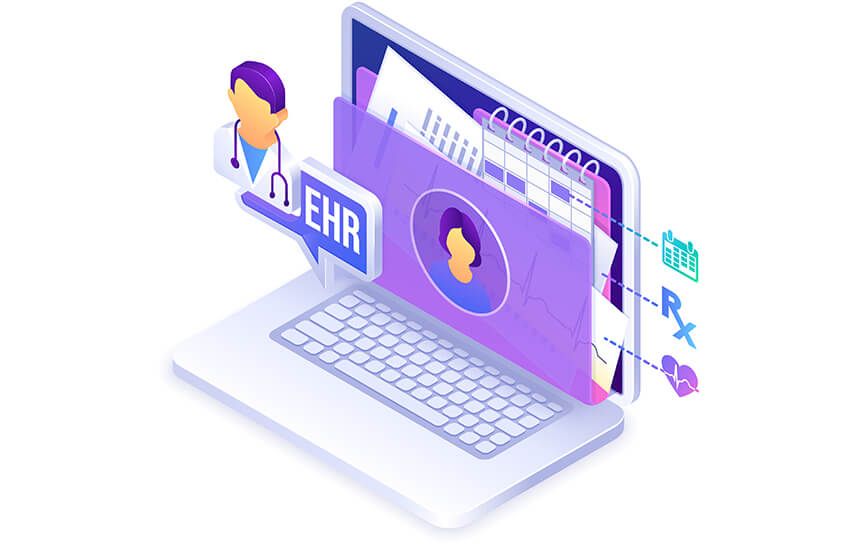
1. EHR Integration Solutions: EHR and EMR systems are digital versions of managing patient records. From the get-go, a robust solution must adopt deep integration with multiple aspects across the organization. Swift access to electronic medical records systems promotes medical records management and better continuity of care, thus improving patient outcomes. Moreover, electronic medical records software is critical for collaborative care and effective treatment.
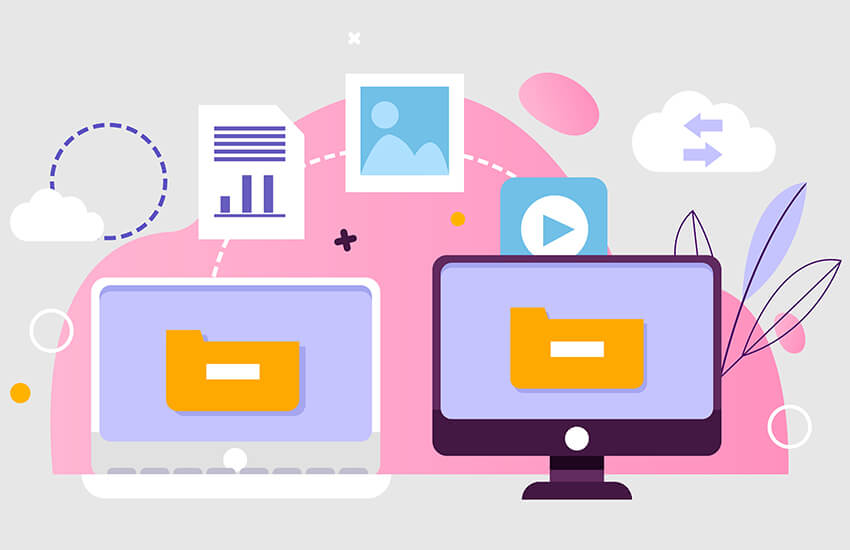
2. Documentation Management: Health management systems require seamless documentation procedures through open-source electronic medical record solutions. EMR- electronic medical records need agile document management solutions that offer electronic data exchange. EMR integration solutions use automated document management techniques to digitize administrative tasks in conjunction with practice management solutions. Be assured that EMR-integrated solutions with agile documentation management features can go a long way in improving the caregiving process.

3. Appointment Scheduling: Another important feature in EMR technical solutions is automated appointment scheduling through cloud computing in healthcare. Cloud-based custom EHR solutions promote patient engagement solutions through practice solutions EMR. Patient scheduling is simplified through the seamless integration of EHR and practice management software. This makes it easier for patients to schedule appointments through integrated healthcare solutions for automated calls, reduced no-shows, and easy follow-ups.
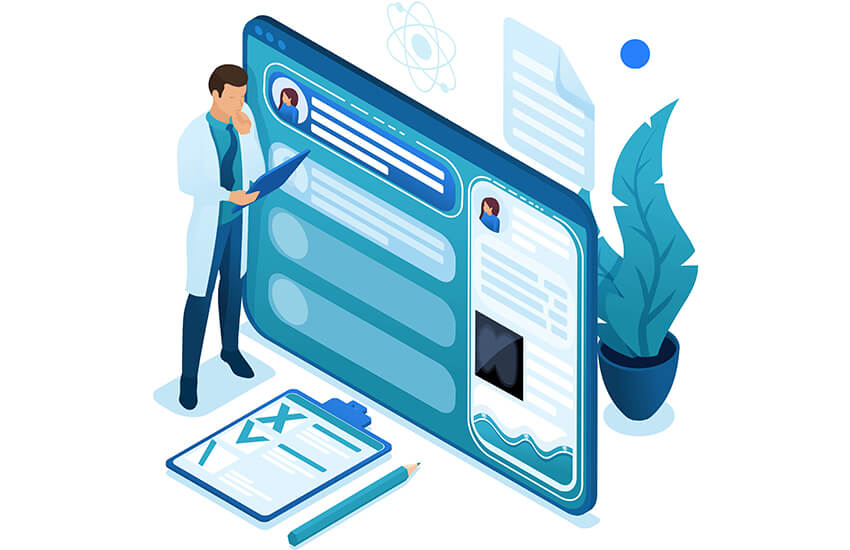
4. Patient Record Accessibility: A critical component of EMR interoperability solutions is to provide easy access to electronic patient record systems. EHR technology platforms should be accessible across multiple locations and devices for holistic caregiving. Healthcare automation can be applied to access cloud-based electronic medical records through EHR integration software. EHR systems in healthcare can be standardized on a common browser for EHR healthcare solutions to improve practice workflows.
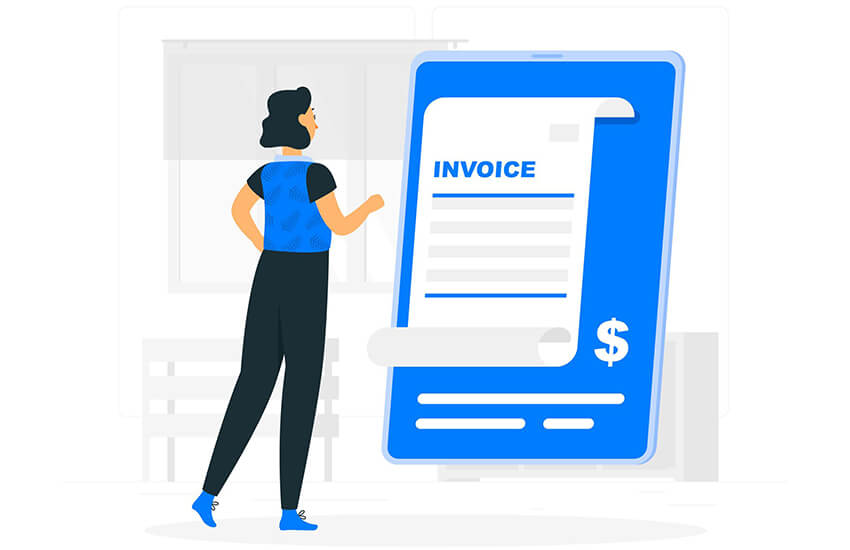
5. ICD-10 Support: EMR healthcare solutions must be built from the clinical practice’s perspective. The financial aspects of EHR healthcare must be noticed. EMR and EHR software should be designed to make the medical billing process easier and prompt by mapping ICD-10 codes. Automating the mapping of health codes is imperative for EMR billing solutions in decreasing repetitive administrative and financial tasks. It will further provide support towards time management and patient health.
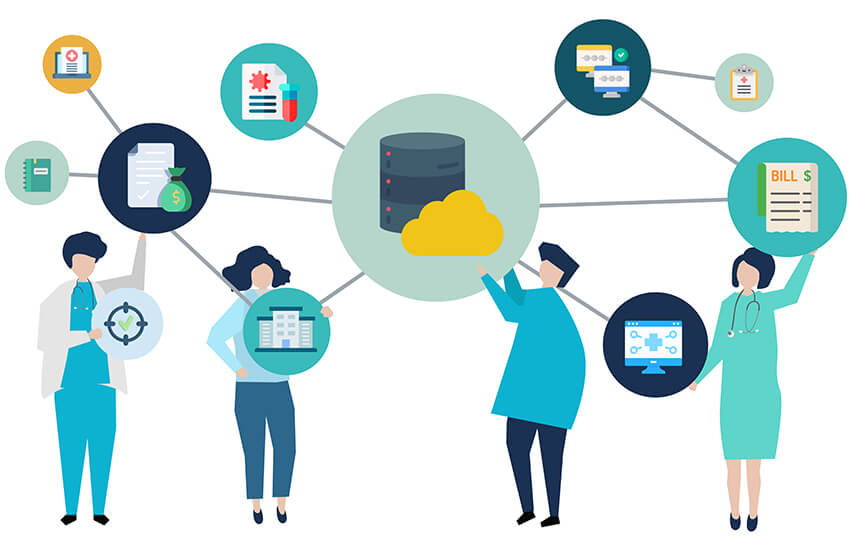
6. Customizable Reports: Generating reports of digital medical records offers quick and easy access to information through healthcare interoperability. Customized reports are created by mining data from hospital EMR systems and other EMR systems that multiple healthcare providers and administrative staff have entered. EHR interoperability solutions then use this information to improve patient outcomes. The electronic patient records system is vital for creating these customized reports. Health providers can benefit greatly from these reports regarding quality caregiving and medical informatics.

7. Analytics Tool: Healthcare analytics solutions are vital to improving clinical practice workflows and integration. EHR technology solutions must have strong analytics tools for overall strength. Additionally, overall analytics can be applied to population health management for an added advantage.
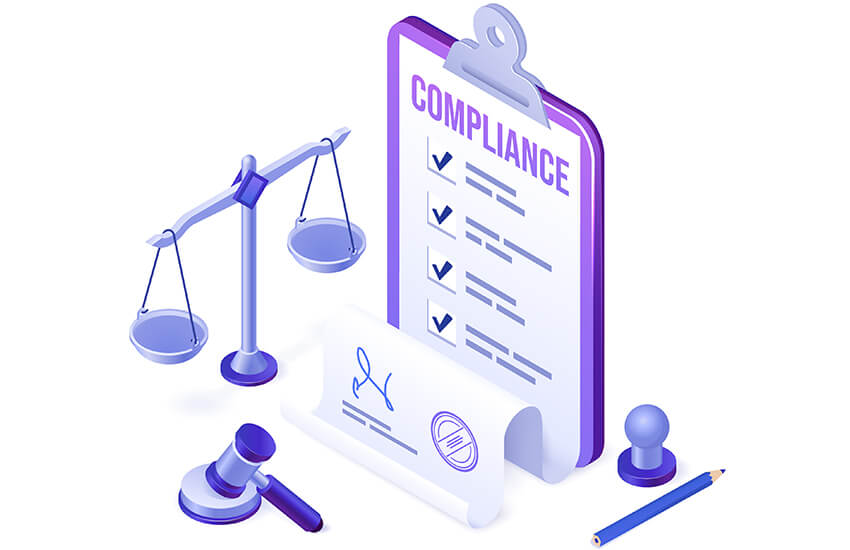
8. HL7 Compliance: All healthcare app development forms, including EMR software development, must incorporate strict HIPAA-compliant solutions. EHR development relies on information exchange with multiple entities. Thus, the EHR solutions must conform with HL7 compliance. mHealth technologies now come embedded with compliance features that promote health insurance safety.
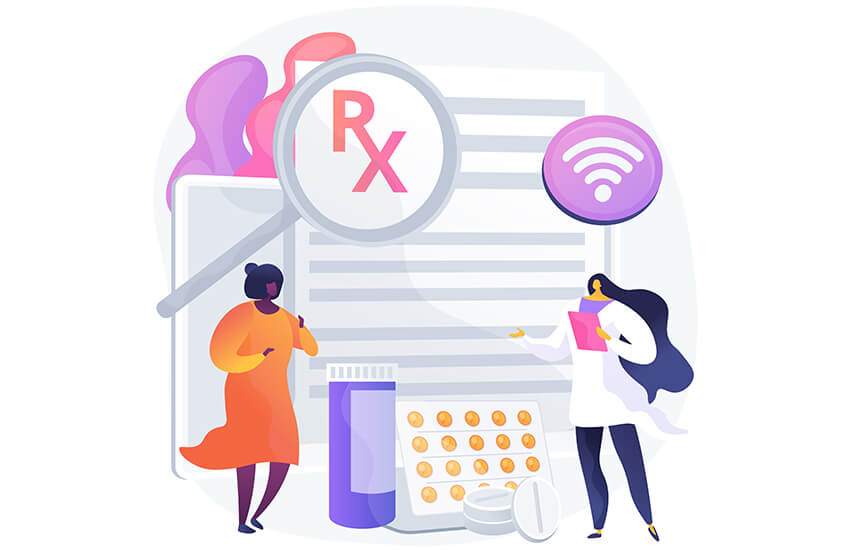
9. E-prescribing: EMR software development can rely on electronic patient record systems to track prescriptions for patients from medical providers. Health EHR software solutions should be empowered with this feature to ensure that patients are safe from access to multiple dosages and medication overdose. EHR healthcare with e-prescribing can also help doctors track the medication regularity of patients. E-prescribing features for EHR systems reduce manual work and tracking for easier healthcare management.

10. Advanced Security: EHR software development within mobile health apps for patients must embed EMR and EHR security protocols. Healthcare EMR systems should be deployed with advanced security features for patient health data security. Electronic health records software can include multiple access layers, depending on the organization. This controls data breaches and authorized control within health applications for doctors.
Conclusion
The list above is a sure-shot way of ensuring that an EHR software solution will be power-packed to sail through the healthcare space. With a wide variety of EHR solutions, paper-based systems can be a thing of the past. Health professionals can rely on new-age apps and solutions for higher patient engagement and a better bottom line.
OSP is a trusted software development company that delivers bespoke solutions as per your business needs. Connect with us to hire the best talents in the industry to build enterprise-grade software.
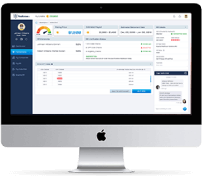
How can we help?
Fill out the short form below or call us at (888) 846-5382
Looking for software solutions to build your product?
Let's discuss your software solutions for your product in our free development acceleration call!
Get In Touch arrow_forwardDiscuss Your Project Handover with a team of expert Book a free consultation arrow_forward
About Author

Written by Riken Shah linkedin
Riken's work motto is to help healthcare providers use technological advancements to make healthcare easily accessible to all stakeholders, from providers to patients. Under his leadership and guidance, OSP Labs has successfully developed over 600 customized software solutions for 200+ healthcare clients across continents.












